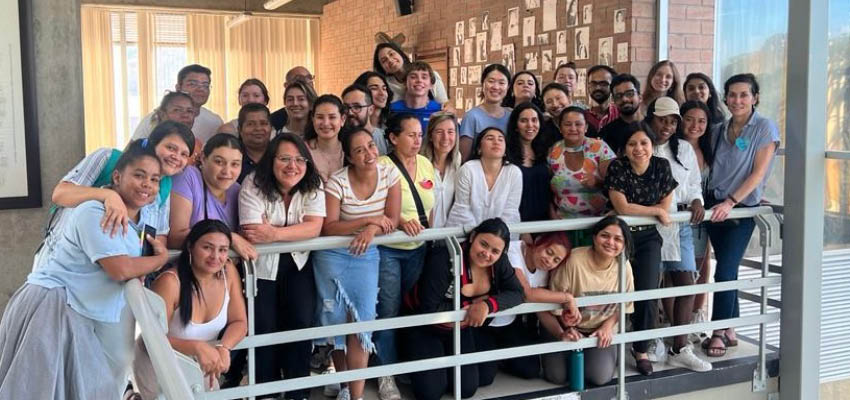
Colombia's economic history is intricately woven with gold mining, constituting nearly 40% of the country's mining exports (National Mining Agency). However, the lucrative industry remains largely unregulated; in 2020, nearly 69% of gold was mined illegally (Berg, et. al). Often, many artisanal and small-scale gold miners (ASGM) resort to informal and illegal practices that risk the health and safety of both their bodies and the environment. Female miners, who make up around 17% of all ASGM, are particularly vulnerable. Often operating in unregulated, peripheral zones or sifting through discarded minerals left by male miners, these women not only contend with lower earnings but also endure gender-based violence, reproductive health challenges, and gender discrimination.
In 2020, the Mineras Mujeres Unidas de Colombia (MMUC), a union of informal female ASGM within the region of Antioquia, was formed to advocate for the rights and visibility of female miners in the face of these challenges. At a Spring Conference in 2022 with MIT D-Lab, the MMUC defined the formalization of their members and the commercial or social registration of their organization as a top priority for their movement. This January, led by Libby McDonald, MIT D-Lab Associate Director of Practice, a team of five MIT D-Lab students from the class D-Lab: Gender and Development (including students from MIT, Wellesley, and Harvard) created a three-day curriculum to advance these conference goals. Through collaboration with students from the University of Colombia and current MMUC leaders, the resulting workshop equipped MMUC leaders with tools and knowledge to start the formalization process, decide on a commercial and social organizational structure, and strengthen solidarity within their movement.
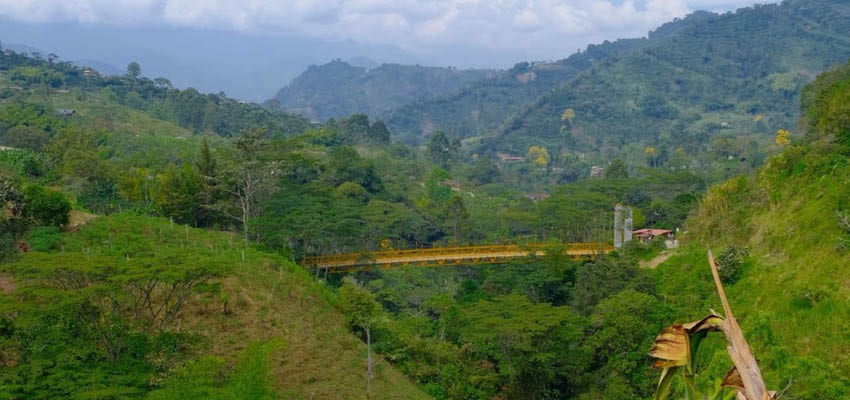
Breaking down the formalization process
The process of becoming formalized with the government is rife with bureaucratic complexity, including paperwork and visits to the mayor’s office. A critical goal of our workshop was to generate a shared understanding of this complex process by leveraging the women’s lived experience, local partners’ expertise, and our own research completed over the semester. It was important that the participants left the workshop intimately familiar with the steps of the formalization process and the documentation necessary to complete them so they could return to their territories after the workshop and teach other women how to complete the process.
We created a card game activity to combine our collective knowledge of the process and help the women memorize the requirements. The use of visuals was strategic, recognizing the power of visual aids in enhancing understanding and retention. This visual representation simplified the overwhelming process, creating a clear roadmap for the women of the MMUC to disseminate further in their respective territories.
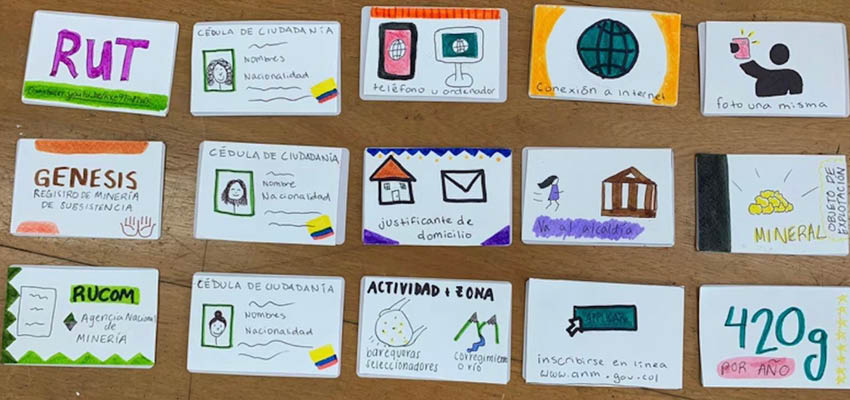
With the help of local organizations and experts, our team identified three fundamental steps in the formalization process: completing the RUT (obtaining a tax identification number), registering for Genesis (the subsistence miner registration process), and applying for RUCOM (the tracking service for gold sales). Each step came with its set of required materials, creating a complex tapestry that needed to be unraveled.
To break down this complexity, we translated each step into playing cards, creating a linear map of the formalization journey. Each row of cards shows the materials essential for the completion of the three fundamental steps. We provided blank cards for the women to contribute their expertise and fill in any steps or nuances that our team might have overlooked, ensuring the card game was a comprehensive representation of our collective knowledge and experiences.
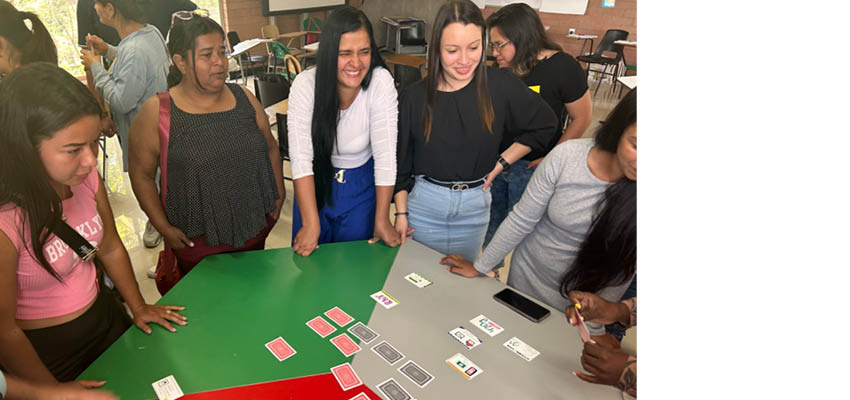
The card game became a dynamic tool for learning, fostering engagement and interaction among the participants. As they navigated the formalization journey through the game, the women gained a practical understanding of the process, making it more than just an abstract concept on paper. The interactive nature of the activity allowed for open discussions, enabling the women to share insights, clarify doubts, and address specific challenges they anticipated. Not only were they instantly engaged with the game, but the women were encouraged to collaborate and challenge each other, working in teams to see who could complete the three sets of cards the fastest.
Beyond its educational value, the card game served as a bridge between formalization and empowerment. By transforming a bureaucratic process into a tangible and interactive experience, our workshop not only equipped the women with knowledge but also instilled confidence in their ability to navigate the complexities of formal mining status. We wanted to not only familiarize them with the process, but also give them the confidence and tools needed to disseminate this information throughout their communities so they could recruit more members of the MMUC to formalize.
The card game developed by our D-Lab team was a powerful tool for our workshop, overcoming bureaucratic challenges through empowerment. As the women of the MMUC left the workshop armed with knowledge and the confidence to share it, we were proud to see that we addressed their fears of the process’s complexity and paved the way for a smoother process of formalization.
Envisioning the commercialization process and creating a purchasing model
Part of the D-Lab workshop emphaszed empowering the MMUC leaders to move forward with the commercialization aspect of their identities as women miners. Within mining regions, a majority of the economic revenue comes from the business these women are engaging in with purchase centers. However, even though this could be seen as an easier than the physical labor of mining, this process comes with its own set of social and economic problems. A lot of these purchasing centers do not offer these women the same price they do for their male counterparts creating a conflict around gender and inequality. Also, a lot of these buying centers sometimes take advantage of these women and falsify their records claiming that they sold more gold than they did leading them to face issues with the taxation system in Colombia (DIAN).
Considering these issues, the women at the workshop were quite vocal about what they wanted their buying centers to embody. Their vision involved both a social and commercial component to the buying centers. The social aspect would serve as an incentive for women miners to do business with them as it provides them with social benefits that a regular buying center would not.
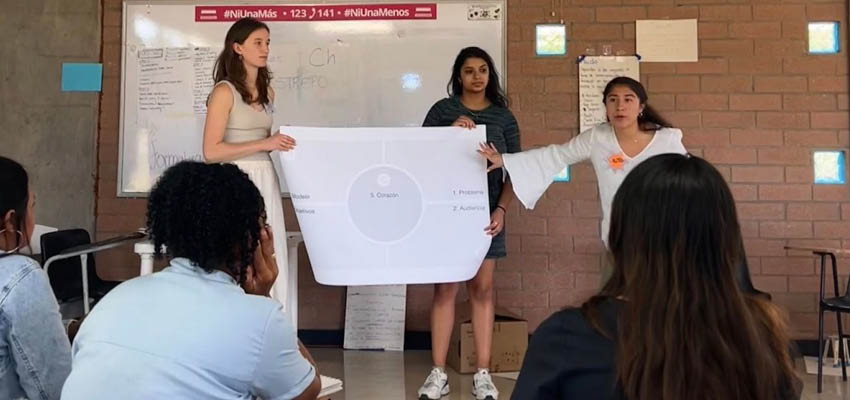
In the picture to above, a mind map model was introduced for the first commercialization activity that allowed the women to map out what problems they were facing and come up with solutions to these problems using a business model. The group split them into two groups, one the social aspect of their buying center and the other the commercial aspect. One group ended up writing about social issues like child care considering a large fraction of women miners are mothers and need a trusted caretaker for their children while they are working. Other issues included education for their women and support for women miners over a certain age. When it came to the commercial model the women focused on price discrimination and legality of buying centers as well as competition with illegal centers or others that could provide a higher price. After brainstorming all ideas, problems and solutions into these maps both groups presented to each other.
Afterwards, we moved towards a more tangible activity to allow the women to visualize the buying centers. We split the women into two groups again and asked them to build their buying centers keeping in mind their vision for these centers whether that be the roles they want women in these to have, materials they need to fulfill their goals and the names of their centers. In the end we were left with tangible models for them to refer to as they move ahead with their initiatives. The center of the left depicts a computer that will allow the women to check the status of their formalization complimenting the social component of their center, considering the social issue that is formalization in women mining communities. On the right, the women depicted the commercialization aspect with a portion of their buying center dedicated to selling artisanal products to fund their centers and create an alternative income source.
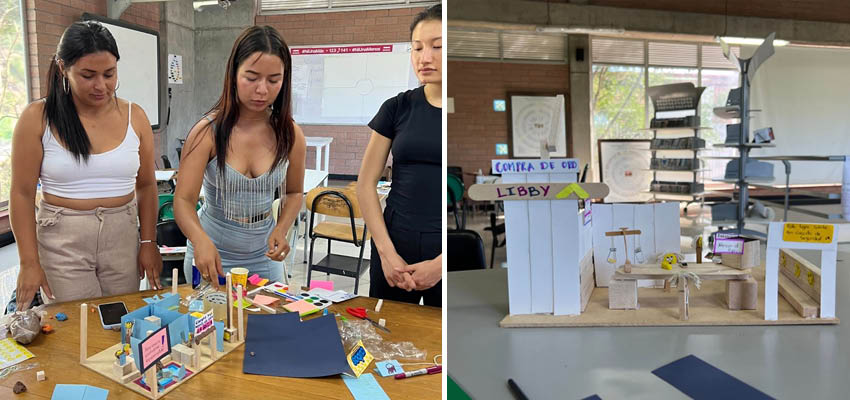
Finally, after being able to physically build the models, both groups presented to each other and found out that their ideas were very similar to each other for their buying centers. Their materials, format as well as roles were the same with only some minor differences when it came to the set up. The last step in this part of the workshop was actually mapping out what the different roles would be when it came to setting up these buying centers. For example, roles included a front desk position, the buyer of the gold, gold melters, and exporters. To create a sense of community and unity for the women once they enter these buying centers, they decided they would be run by women and emphasize attention to the client. What will differentiate these buying centers from those that may pay more is the sense of community they will foster and the fact that the women will be at the heart as well as the head of the business.
Overall, the commercialization and business model portion of the workshop was a success. It left the women with a tangible and physical plan for them to continue implementing their world as well as allowed them to communicate with each other to find common ground on what to focus their model on. As facilitators, it was an enriching experience watching these women embody leadership positions when it came to explaining their buying centers, how they wanted to format them, and building off each other's ideas towards the formation of a final product.
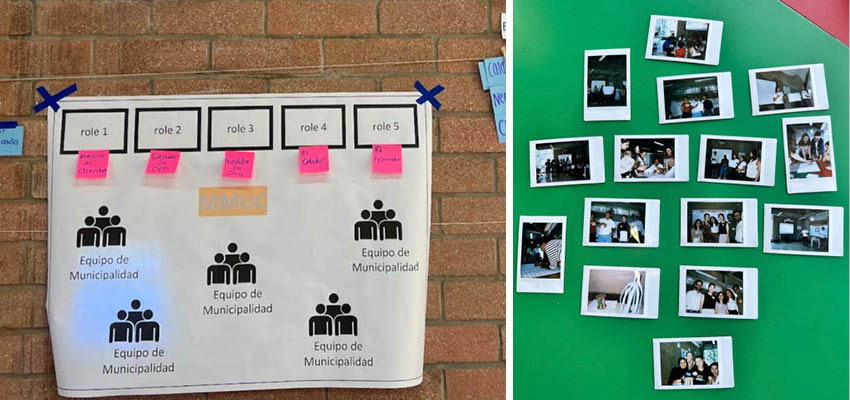
Cited sources
- Berg, Ryan C., Henry Ziemer, and Arianna Kohan. “A Closer Look at Colombia’s Illegal,
- Artisanal, and Small-Scale Mining.” Center for Strategic & International Studies,
- December 2021.
- “Colombia.” National Mining Agency, https://mineriaencolombia.anm.gov.co/sites/default/
- files/2021-08/Fact%20Sheet%20Colmbia%2008%202021.pdf. Accessed 7 December 2023.
More information
MIT D-Lab class: D-Lab: Gender and Development
Contact
Libby McDonald, MIT D-Lab Lecturer and Associate Director for Practice

